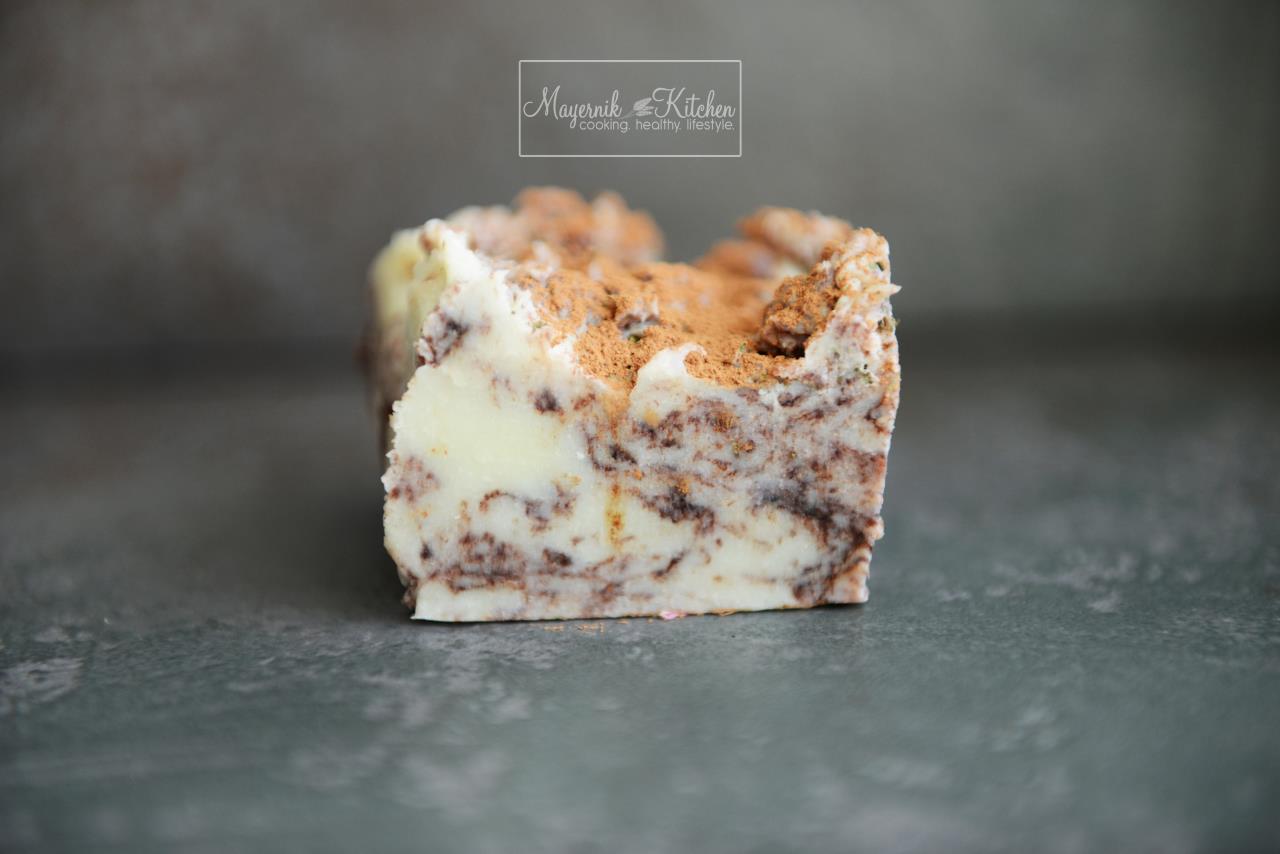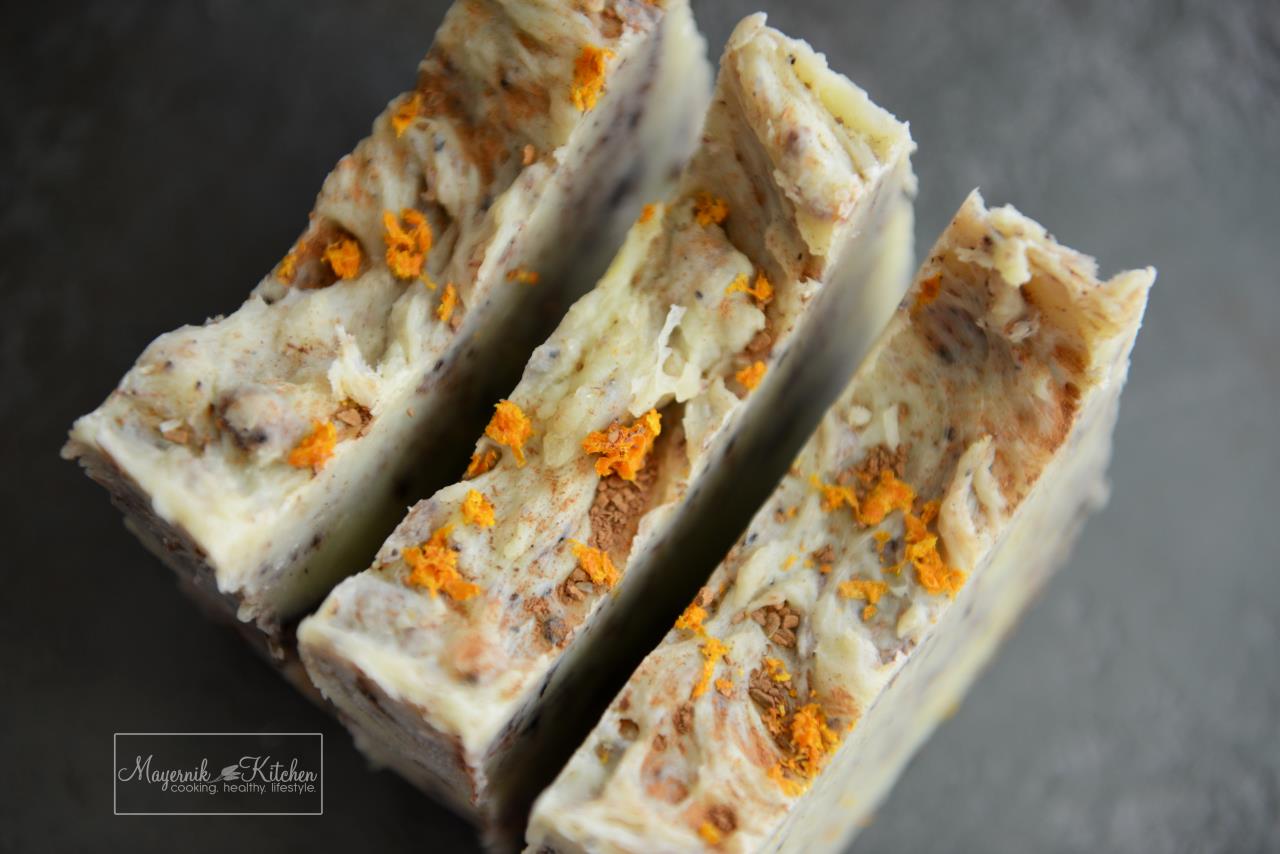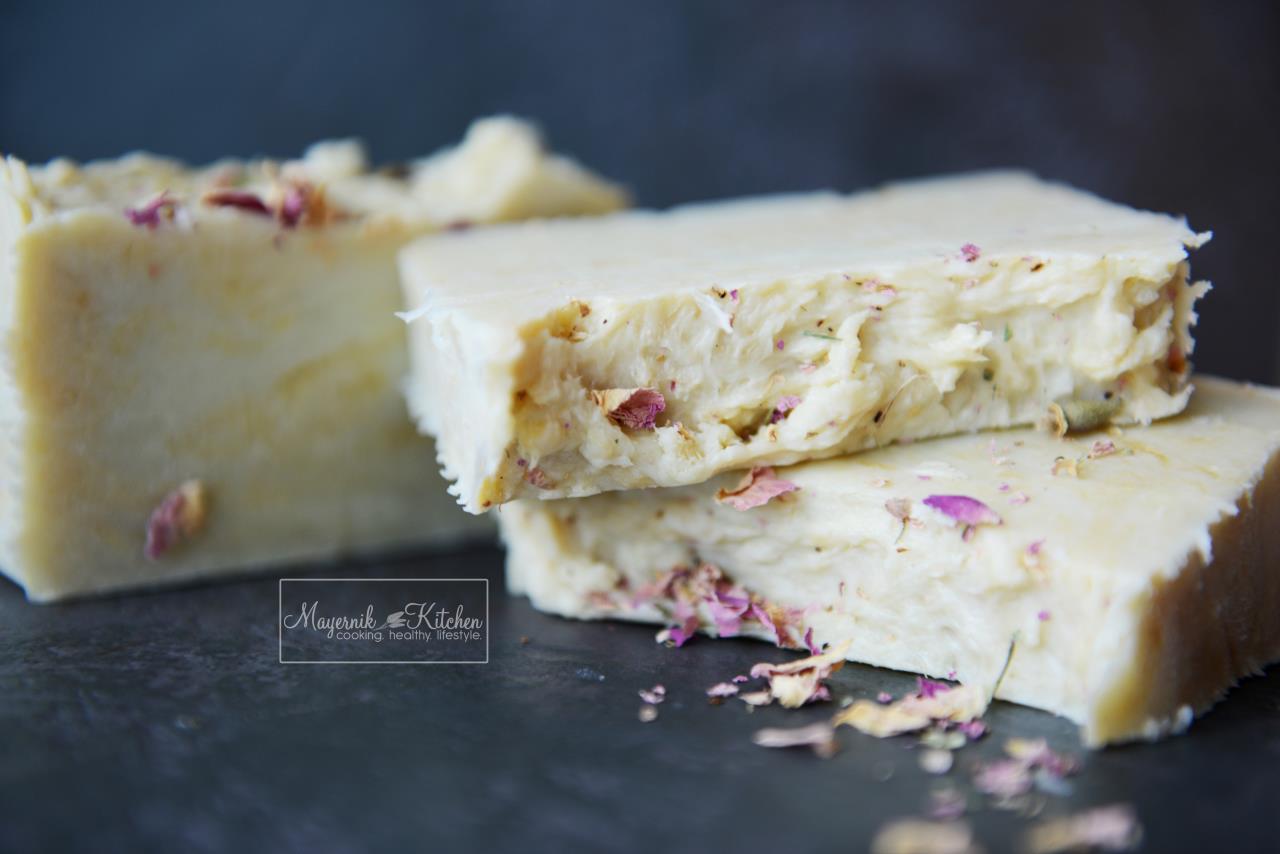Mayernik Kitchen Homemade Vegan Soap will be part of the February Out of the Woods Apothecary Box
(sold seperately for $6.50 a bar)
- Organic Geranium with Dried Organic Roses
- Organic Peppermint with Organic Cacao
- Organic Cinnamon Bark with Fresh Orange Zest
Over the last few months, I’ve been slowly transitioning my everyday life to a wholly natural, organic lifestyle. Aside from eating this way, there are so many other habits we can form in order to ensure we are living the best lives possible. Though this sounds like a basic concept, and it can be if you’re in the know, finding foods and products that are entirely natural can be a bit trickier than we might think. One way that Matt and I have decided to make this a bit easier on ourselves is to begin making our own soap.

As with anything, making something homemade is always best because then you know exactly what is going into the product in contrast to assuming the product contains solely what the company is required to disclose.
One of the biggest battles is learning the meaning behind corporate jargon. Many consumers – that’s us – do not know that there is a distinct difference between the words “natural” and “organic”. We tend to flock to items labeled as “All Natural” even though there are minimal – if any – restrictions to what these items can contain. However, items labeled “organic” do have specific rules distributed from the USDA that must be followed. Most mass-produced soaps on the market, even the “All Natural” ones are not really soaps at all. Instead, they are detergents. Did you ever notice that many of these soaps leave your skin feeling dry, itchy, or tight – even going against the promise that they are super moisturizing? It’s because detergents are petroleum-based; you know, like gasoline? If that doesn’t sound deterring enough, just know that this is all a ploy. If you use these skin-drying detergents, then you’ll also need to buy moisturizers, creams, oils, and other products in order to keep your skin healthy and large companies in business.

Or, you can simply take the Mayernik way. Making our own soap was not only easier than we expected, but it was much more rewarding. We now know every ounce of what went into these products used on our skin. They contain no harmful ingredients, include nothing poisonous to our bodies, and allow us to use less overall product during our morning “getting ready” routines. Knowing that we can scent our soaps with essential oils rather than destructive chemicals, use glycerine (that’s the key component in a soap vs. the petroleum in a detergent) to keep our skin hydrated, and protect not only ourselves but our environment is motivation enough to travel down the homemade soap road.
